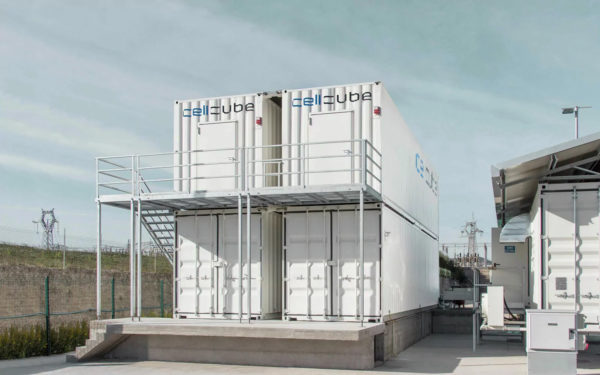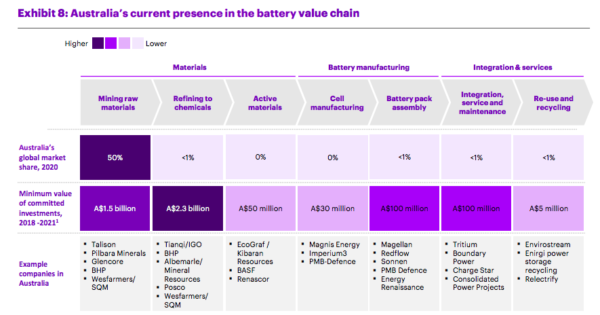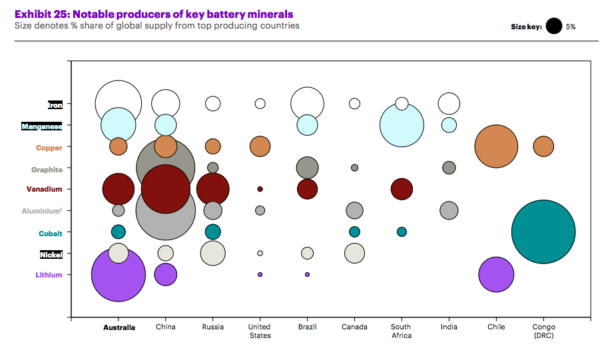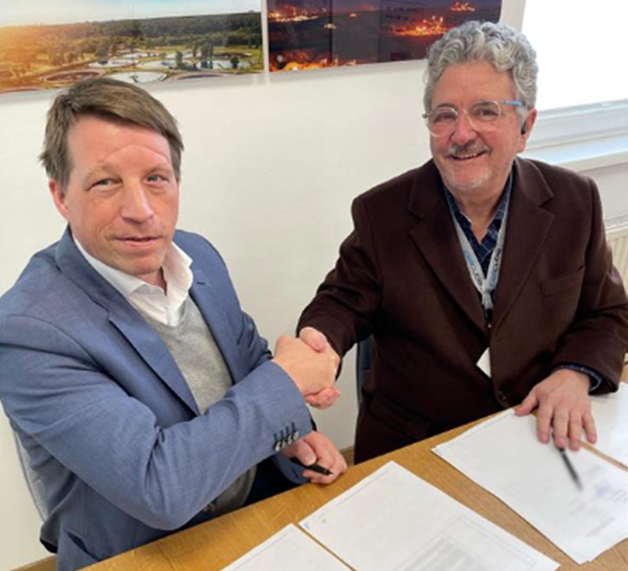Austrian company Enerox, which sells vanadium redox flow battery (VRFB) systems under its brand CellCube, has announced a partnership with BESS Research to figure out how vanadium redox flow batteries can be best deployed in Australia.
The announcement is far from explicit, but it seems BESS Research will procure CellCube’s licensed technology, componentry, and services for a vanadium redox flow battery with a capacity of 2 MWh to 8MWh. This battery will then be used in a process of research and development (R&D) to finesse the technology to “meet the Australian market’s wide-ranging uses.”
Once this research is successfully completed, the companies say they expect to release “localised” CellCube systems for Australian clients in the second half of 2023 “for trialling across a number of sites with a variety of harsh and complex Australian weather conditions.”

“The objective is to predominantly support industrial and commercial microgrid systems where customers are seeking to enhance their renewable generation with long-duration energy storage (4+ hours),” the media releases says.
Vanadium redox flow batteries
Vanadium redox flow battery technology was first developed at the University of New South Wales in 1980s, but struggled to get off the ground commercially.
The decarbonisation of global energy systems, however, has refreshed interest in the technology which is more durable, better able to weather harsh climates and can offer longer duration storage than lithium-based batteries. While these features and histories would seemingly make flow batteries particularly attractive in Australia, to date they have primarily been deployed in South Africa and China.
BESS Research, which states its objective as “breaking down the barriers limiting Australian industries’ adoption of large-scale vanadium redox flow batteries” is eager to see the Australian opportunity realised though – albeit belatedly.
To that end, the BESSS Research and CellCube partnership will also include Western Australian membrane technology company Nanomem Solutions Limited as it seeks to improve the existing proton exchange membranes used in redox flow batteries.
Nanomem Solutions is also set to secure local vanadium electrolyte sources in Australia.

Back in 2020, Enerox CellCube actually signed an agreement with Australian Vanadium Limited – which is developing one of Australia’s biggest vanadium projects. That agreement specifically included the supply of vanadium electrolyte, and it’s unclear whether it has been voided or will be ongoing as Enerox CellCube tries to gain a foothold in Australia.
Either way, Enerox CellCube is eager to promote Andrew McKee, who it describes as a vanadium industry “pioneer” having co-developed Australia’s first and only vanadium mine and processing plant at Windimurra, Western Australia.
“We are facing a high demand for double-digit megawatt storage systems in remote areas,” McKee, who is now the managing director at Nanomem, says.
“Australian customers want to see a successful proof of concept project with a megawatt battery storage delivering power and energy for multiple hours – a complete storage technology covered by bankable performance guarantees and with the ability to leverage finance through PPAs.
“We have engaged with R&D provider BESS to perform the functionalisation for Australian conditions on the VRFB technology.
“A stationary battery with large and quick dispatchability shifting energy without degradation is the missing link for our renewable future. Our partner CellCube is the global VRFB leader for this microgrid application, and BESS/CellCube will provide this piece of the puzzle that makes 24/7 renewable power possible,” McKee adds.
In the announcement, Alexander Schoenfeldt, CEO of CellCube also highlighted the renewed focus from Australian governments on developing local battery manufacturing and supply chains.
“This cooperation follows our business strategy to establish regional offerings and working with local supply chain partners to build megawatt microgrids in our key markets,” Schoenfeldt said.

“As started in North America and South Africa, we are now keen to start business in Australia and, as such, mobilising key staff to build local knowledge and teams and value in Australia for the Australian market.”
Just in the last week, a number of Australian state governments, including in Victoria, Queensland and New South Wales, have taken steps towards realising more renewable energy storage projects – often foreshadowing the need for long duration storage, though currently pumped hydro is touted as the solution of choice.
Australian vanadium projects
There are a number of vanadium projects in development in Australia today, including from Australian Vanadium Limited, a Western Australian company, which is seeking to establish both a vanadium mine and commercial vanadium battery electrolyte manufacturing capability within Western Australia.
Another West Australian company, TNG, is also developing a vanadium project which is claims is the country’s most advanced. Its Mount Peake Project in the Northern Territory also includes a mine and a vanadium processing facility – but the company’s leadership is currently embroiled in a dramatic fight initiated by shareholders. It remains to be seen whether it will disrupt the timelines on the company’s flagship project.
Despite having a relatively low uptake of flow batteries, Brisbane company Redflow, which uses a zinc-bromine makeup for its flow batteries rather than vanadium, is currently having considerable successes pushing into the US market.
This content is protected by copyright and may not be reused. If you want to cooperate with us and would like to reuse some of our content, please contact: editors@pv-magazine.com.









6 comments
By submitting this form you agree to pv magazine using your data for the purposes of publishing your comment.
Your personal data will only be disclosed or otherwise transmitted to third parties for the purposes of spam filtering or if this is necessary for technical maintenance of the website. Any other transfer to third parties will not take place unless this is justified on the basis of applicable data protection regulations or if pv magazine is legally obliged to do so.
You may revoke this consent at any time with effect for the future, in which case your personal data will be deleted immediately. Otherwise, your data will be deleted if pv magazine has processed your request or the purpose of data storage is fulfilled.
Further information on data privacy can be found in our Data Protection Policy.